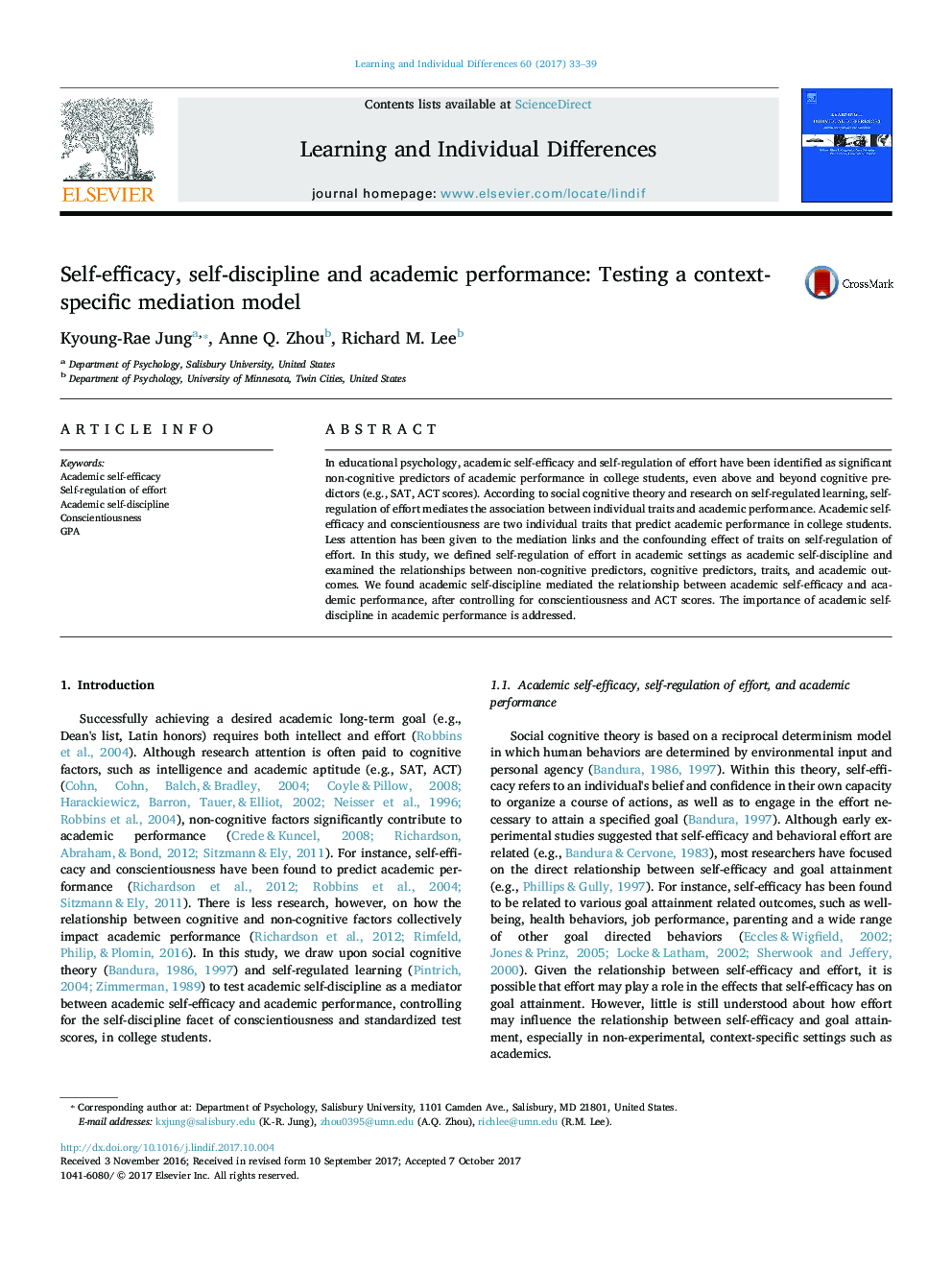| Article ID | Journal | Published Year | Pages | File Type |
|---|---|---|---|---|
| 4939952 | Learning and Individual Differences | 2017 | 7 Pages |
Abstract
In educational psychology, academic self-efficacy and self-regulation of effort have been identified as significant non-cognitive predictors of academic performance in college students, even above and beyond cognitive predictors (e.g., SAT, ACT scores). According to social cognitive theory and research on self-regulated learning, self-regulation of effort mediates the association between individual traits and academic performance. Academic self-efficacy and conscientiousness are two individual traits that predict academic performance in college students. Less attention has been given to the mediation links and the confounding effect of traits on self-regulation of effort. In this study, we defined self-regulation of effort in academic settings as academic self-discipline and examined the relationships between non-cognitive predictors, cognitive predictors, traits, and academic outcomes. We found academic self-discipline mediated the relationship between academic self-efficacy and academic performance, after controlling for conscientiousness and ACT scores. The importance of academic self-discipline in academic performance is addressed.
Related Topics
Social Sciences and Humanities
Psychology
Developmental and Educational Psychology
Authors
Kyoung-Rae Jung, Anne Q. Zhou, Richard M. Lee,
